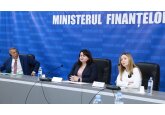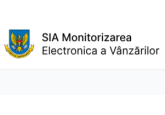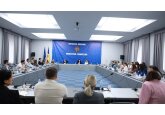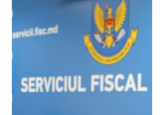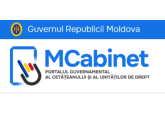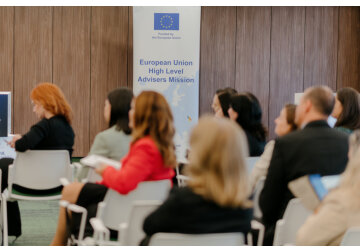
The Ministry of Finance, jointly with the EU High-Level Advisers Mission, launched an information campaign on the new tax and customs policy
It started with a dialog with representatives of the business environment. According to the Ministry of Finance, the aim of the event was to explain the new tax measures before they come into force in order to prepare the business environment for future innovations and potential challenges. At the beginning of the event, State Secretary of the Ministry of Finance Cristina Ixari noted the importance of an open dialogue between the state authorities and the business environment, emphasizing that this type of interaction not only increases transparency, but also contributes to the formulation of a more effective tax policy adapted to the current economic realities. Secretary of State of the Ministry of Finance also encouraged companies to express their concerns and proposals, assuring them that the authorities are open to suggestions that can support the national economy and facilitate the activity of economic agents that comply with the legislation. For his part, Rosario de Blasio, EU High Adviser for Customs and Tax Policy, emphasized the crucial role of cooperation between all actors involved in the drafting and discussion process of this important policy document. “In order to effectively respond to all potential challenges in this process and move forward with the transposition of EU legislation, we need a coordinated joint effort and the realization that every ingredient matters in this complex process,” he said. During the event, experts from the Ministry of Finance, State Tax Service and Customs Service involved in the process of drafting and advising the new tax and customs policy presented the main reliefs being introduced for both legal entities and individuals. Keynote speakers noted that in addition to supporting low-income citizens through a 10 percent increase in personal exemptions, the new fiscal policy also expands sources of untaxed income (including from government securities and bonds) to stimulate certain sectors such as renewable energy, education, and others. Discussions also focused on new measures introduced to support economic development, such as: revision of transfer pricing provisions, introduction of a new instrument to stimulate long-term employment - an option program granting the right to apply accelerated depreciation method for all legal entities; as well as on aspects of harmonization of national legislation with EU directives. The participants had the opportunity to ask questions and express their opinions on the presented measures, thus contributing to the constructive dialog necessary for the development of fair and competitive long-term policies. The Customs and Tax Policy for 2025 was developed by the Ministry of Finance with the support of the EU High Level Advisers Mission and underwent a complex process of consultations with representatives of the business environment, trade associations, central and local authorities, with a total of about 300 proposals considered. The Business Dialogue is the first activity of the Fiscal and Customs Policy 2025 awareness raising campaign, which will continue in November-December with thematic workshops where public and private sector representatives will collaborate in working groups to identify solutions for effective implementation of legislative changes and promote constructive dialogue between stakeholders. // 11.10.2024 - InfoMarket.



